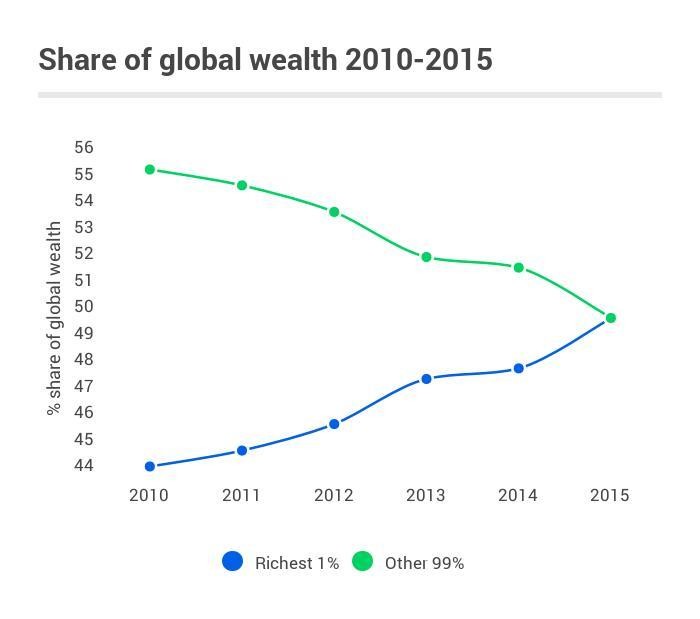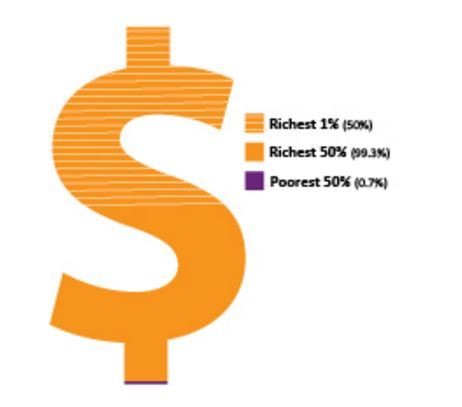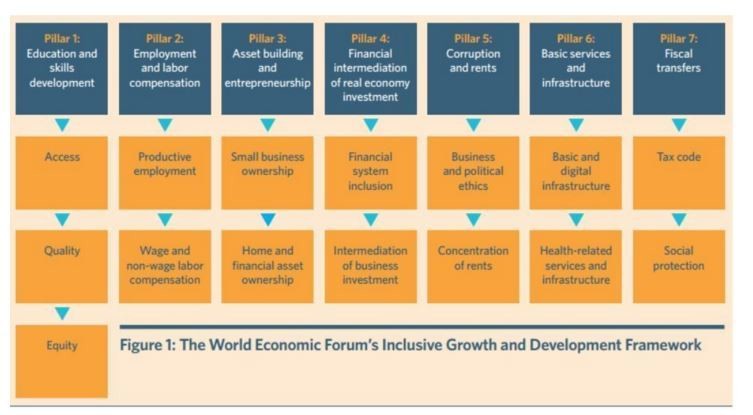3 charts that explain global inequality

A boy uses colour markers to fill his drawing book outside his makeshift school. Image: REUTERS/Mian Khursheed
The richest 1% hold over 50% of the world’s wealth. That’s according to an Oxfam report published this week, as world leaders gathered for the 46th World Economic Forum in Davos.

According to the report, 62 billionaires own the same amount of wealth as 3.5 billion people who make up the poorest half of the world’s population. In a dramatic widening of inequality, this number has fallen from 388 in 2010, and is set to become just a handful of super rich by 2020.
The wealth held by the 62 richest people on the planet is estimated at $1.76 trillion, a 44% increase from five years ago. Meanwhile, the 3.5 billion poorest people have seen their wealth shrink by over a trillion dollars, or 41%, in the same period.
This is despite the fact that the world’s population has increased by 400m. To look at it another way, the richest 1% now own half of the world’s wealth, and the richest 50% own over 99% of the world’s wealth. The poorest, less than 1%.

It’s not the only a gulf between rich and poor, there is a gender disparity too – just nine of those 62 are women.
Inequality – a topic high on the agenda in the discussions being held at Davos – is damaging to nations and the global economy. At its worst, it threatens social and political stability.
How to boost growth and social inclusion
Few people would disagree that the benefits of economic growth should be shared – the question is how?
Nearly a decade on from the financial crisis, the global economy remains sluggish – averaging 3% annual growth since 2008 – and productivity is stagnating.
Whilst stimulating economic growth is a high priority policy for governments, there is a prevalent attitude that tackling inequality has to include economic sacrifice.
The opposite is true. Evidence is growing that higher equality is a contributor to global growth. Not only that, but inequality slows growth down, as spending power is confined to too few pockets.
The Inclusive Growth and Development Report by the World Economic Form highlights a wide spectrum of policy and institutional levers that can foster growth and social inclusion at the same time.
These include areas such as access to quality education, productive employment and entrepreneurship, access for all to basic living standards and infrastructure, as well as anti-corruption and fiscal remedies.

With better economic models created by new partnerships among governments, businesses and civil society, we can start to see economic growth climb alongside social inclusion.
The Annual Meeting is taking place in Davos from 20-23 January, under the theme “Mastering the Fourth Industrial Revolution”.
Author: Alex Gray is a Senior Writer at Formative Content.
Don't miss any update on this topic
Create a free account and access your personalized content collection with our latest publications and analyses.
License and Republishing
World Economic Forum articles may be republished in accordance with the Creative Commons Attribution-NonCommercial-NoDerivatives 4.0 International Public License, and in accordance with our Terms of Use.
The views expressed in this article are those of the author alone and not the World Economic Forum.
Stay up to date:
Inequality
Related topics:
Forum Stories newsletter
Bringing you weekly curated insights and analysis on the global issues that matter.
More on Economic GrowthSee all
Rishika Daryanani, Daniel Waring and Tarini Fernando
November 14, 2025







